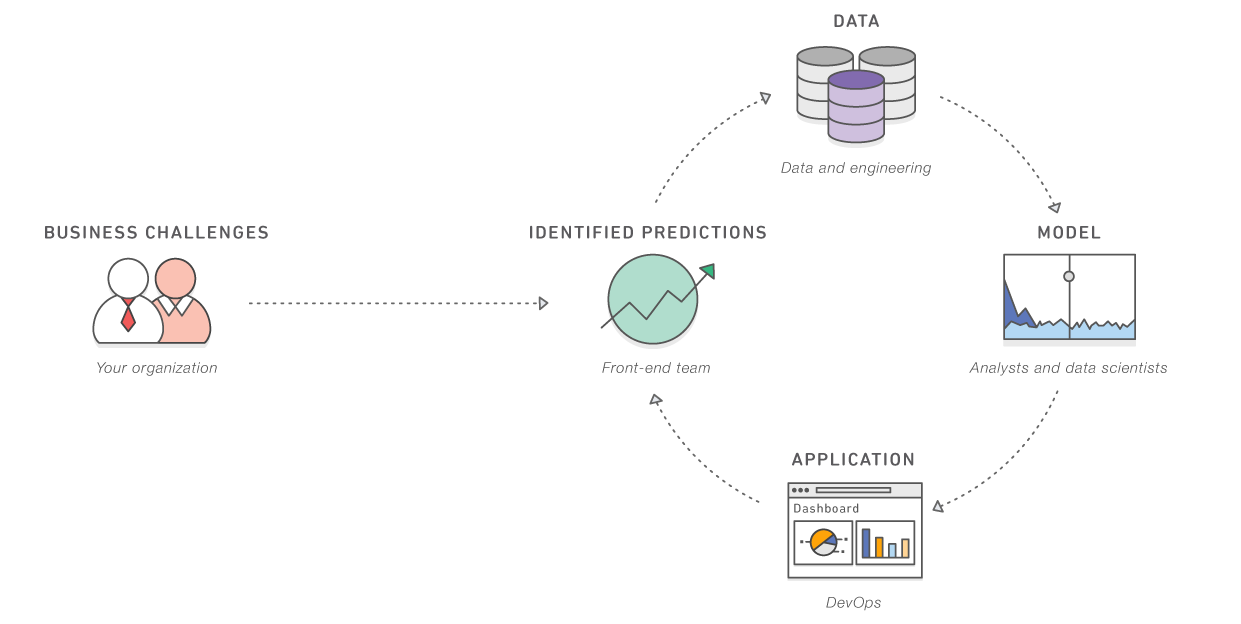
Artificial Intelligence (AI) is the field of computer science dedicated to solving cognitive problems commonly associated with human intelligence, such as learning, problem solving, and pattern recognition. Artificial Intelligence, often abbreviated as “AI”, may connote robotics or futuristic scenes, AI goes well beyond the automatons of science fiction, into the non-fiction of modern day advanced computer science.
Professor Pedro Domingos, a prominent researcher in this field, describes “five tribes” of machine learning, comprised of symbolists, with origins in logic and philosophy; connectionists, stemming from neuroscience; evolutionaries, relating to evolutionary biology; Bayesians, engaged with statistics and probability; and analogizers with origins in psychology. Recently, advances in the efficiency of statistical computation have led to Bayesians being successful at furthering the field in a number of areas, under the name “machine learning”. Similarly, advances in network computation have led to connectionists furthering a subfield under the name “deep learning”. Machine learning (ML) and deep learning (DL) are both computer science fields derived from the discipline of Artificial Intelligence.
Broadly, these techniques are separated into “supervised” and “unsupervised” learning techniques, where “supervised” uses training data that includes the desired output, and “unsupervised” uses training data without the desired output.
AI becomes “smarter” and learns faster with more data, and every day, businesses are generating this fuel for running machine learning and deep learning solutions, whether collected and extracted from a data warehouse like Amazon Redshift, ground-truthed through the power of “the crowd” with Mechanical Turk, or dynamically mined through Kinesis Streams. Further, with the advent of IoT, sensor technology exponentially adds to the amount of data to be analyzed — data from sources and places and objects and events that have previously been nearly untouched.
Machine Learning is the name commonly applied to a number of Bayesian techniques used for pattern recognition and learning. At its core, machine learning is a collection of algorithms that can learn from and make predictions based on recorded data, optimize a given utility function under uncertainty, extract hidden structures from data and classify data into concise descriptions. Machine Learning is often deployed where explicit programing is too rigid or is impractical. Unlike regular computer code that is developed by software developers to try to generate a program code-specific output based on given input, machine learning uses data to generate statistical code (an ML model), that will output the “right result” based on a pattern recognized from previous examples of input (and output, in the case of supervised techniques). The accuracy of an ML model is based mainly on the quality and quantity of the historical data.
With the right data, an ML model can analyze high dimensional problems with billions of examples, to find the optimal function that can predict an outcome with a given input. ML models can usually provide statistical confidence on predictions, as well as on its overall performance. Such evaluation scores are important in the decision if you are to use an ML model or any individual prediction.
Amazon.com is building a lot of its business on machine Learning-based systems. Without ML, Amazon.com couldn’t grow its business, improve its customer experience and selection, and optimize its logistic speed and quality. Amazon.com started AWS to allow other business to enjoy the same IT infrastructure, with agility and cost benefits, and now continues to democratize ML technologies to the hands of every business.
The structure of Amazon.com development teams, and the focus on ML to solve hard pragmatic business problems, drives Amazon.com and AWS to develop simple-to-use and powerful ML tools and services. These tools are first tested in the scale and mission critical environment of Amazon.com, before they are exposed as AWS services for every business to use, similar to other IT services.
Machine learning is often used to predict future outcomes based on historical data. For example, organizations use machine learning to predict how many of their products will be sold in future fiscal quarters based on a particular demographic; or estimate which customer profile has the highest probability to become dissatisfied or the most loyal to your brand. Such predictions allow better business decisions, more personal user experience, and the potential to reduce customer retention costs. Complementary to business Intelligence (BI), which focuses on reporting past business data, ML predicts future outcomes based on past trends and transactions.
There are several steps that comprise a successful implementation of ML in a business. First, identifying the right problem — identifying the prediction that would benefit the business if ascertained. Next, the data must be collected, based on historical business metrics (transactions, sales, attrition, etc.). Once the data is aggregated, an ML model can be built based on that data. The ML model is run and the prediction output of the model is applied back to the business system to make more informed decisions.

Implementing Machine Learning in your Organization
These Stories on Artificial Intelligence
No Comments Yet
Let us know what you think